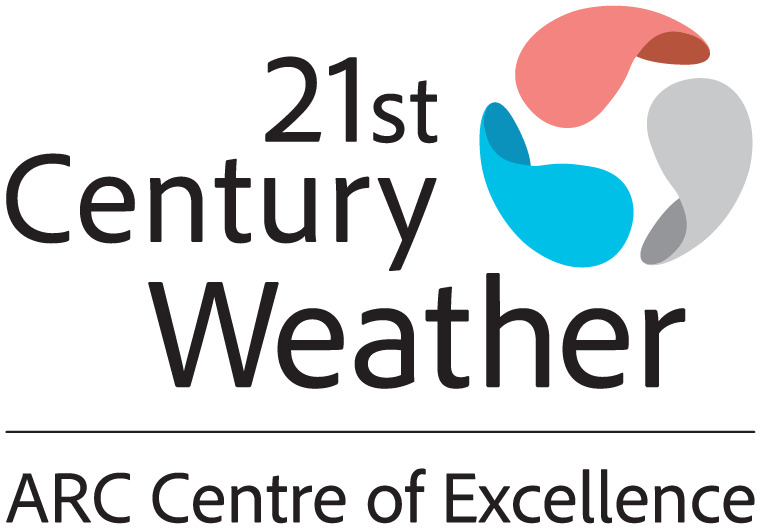 June 18, 2025 11:54 pm
Published by Iain Strachan
June 18, 2025 11:54 pm
Published by Iain Strachan
Earth’s cloud cover is rapidly shrinking and contributing to record-breaking temperatures, according to new research involving the Monash-led Australian Research Council Centre of Excellence for 21st Century Weather. The research, led by the United States’ National Aeronautics and Space Administration (NASA) and published in Geophysical Research Letters, analysed satellite observations to find between 1.5 and 3 per cent of the world’s storm cloud zones have been contracting each decade in the past 24 years. The trend has been linked to changing wind... Read More
 June 18, 2025 4:55 am
Published by Iain Strachan
June 18, 2025 4:55 am
Published by Iain Strachan
A new experimental music work, Dark Oceanography, will premiere at the Monash University Performing Arts Centres on Sunday 27 July, immersing audiences in the swirling dynamics of ocean eddies and the future impacts of climate change beneath the surface of the sea. Created by The Sound Collectors Lab in partnership with the ARC Centre of Excellence for the Weather of the 21st Century, the work is a collaboration between leading percussionists, composers, music technologists and climate scientists. It uses ocean... Read More
 June 13, 2025 6:34 am
Published by Iain Strachan
June 13, 2025 6:34 am
Published by Iain Strachan
21st Century Weather is proud to share the news that Professor Nerilie Abram, our Deputy Director and Chief Investigator, has been appointed as the new Chief Scientist of the Australian Antarctic Division. The appointment marks a major milestone in Nerilie’s career as one of Australia’s most respected climate scientists. She will take up the post in August 2025, leading the scientific direction of the Australian Antarctic Program at a time of profound change for Antarctica and the Southern Ocean. A... Read More
 June 13, 2025 5:35 am
Published by Iain Strachan
June 13, 2025 5:35 am
Published by Iain Strachan
Australia’s rainfall is changing in distinct and important ways. Summers in the tropical north are getting wetter, while winters in the southeast are becoming drier. New research led by Dr Chenhui Jin at Monash University has taken a fresh look at the weather systems that modulate seasonal rain across the continent, helping to explain the causes of both long-term shifts and year-to-year variability. The study objectively identifies six types of weather systems – cyclones, anticyclones, fronts, warm conveyor belts, Rossby... Read More
 June 6, 2025 4:40 am
Published by Iain Strachan
June 6, 2025 4:40 am
Published by Iain Strachan
As the world continues to warm, the atmosphere will hold more moisture. That simple fact is reshaping how we think about rain, especially the powerful, moisture-laden weather systems known as atmospheric rivers. Atmospheric rivers are long, narrow bands of concentrated moisture in the sky. When they pass over land, they can bring much-needed rain to dry regions, or cause damaging floods. In Australia, they already play a major role in seasonal rainfall, especially in the southeast. But what will these... Read More
 May 23, 2025 5:54 am
Published by Iain Strachan
May 23, 2025 5:54 am
Published by Iain Strachan
Scientists are working to better understand a risk to Antarctica’s future, after finding climate change could significantly alter the ocean current protecting the frozen continent from warmer waters further north. New research published in Geophysical Research Letters predicts the melting of Antarctic ice will alter the Antarctic Slope Current, estimating it will be around 50 per cent faster by 2050. The Antarctic Slope Current flows westward and encircles almost the entire continent, forming a protective barrier between the Antarctic ice... Read More
 May 20, 2025 2:56 am
Published by Iain Strachan
May 20, 2025 2:56 am
Published by Iain Strachan
Australia’s climate simulator (ACCESS-NRI) has released a fully supported version of a regional climate model that enables researchers to understand high-impact weather events like hurricanes, floods and droughts, which are not captured by the wide-angle lens of global climate models. Regional climate models are game changers when it comes to simulating high-impact weather events, and they’re particularly important for unique landscapes like Australia. While global climate models capture the big picture across the planet, they miss local high-impact weather events... Read More
 May 20, 2025 12:54 am
Published by Iain Strachan
May 20, 2025 12:54 am
Published by Iain Strachan
A combination of tree cover at street level and rooftop solar panels may be the best approach to combat urban heat in a warming climate, new research has indicated. Scientists from Canada, the United States, Spain and Australia looked at how three cities with different climates – Phoenix, Toronto, and Miami – can deal with more frequent and intense heatwaves this century. The team used advanced computer models to study how well things like street-level trees, cool roofs, green roofs,... Read More
 May 5, 2025 11:01 pm
Published by Iain Strachan
May 5, 2025 11:01 pm
Published by Iain Strachan
The tropics, located near the Equator, are known for their high temperatures and abundant rainfall. However, not all places in the tropics are equal, and one key reason for this is the distribution of water vapour, or humidity, across the globe, writes Monash University PhD student Corey Robinson. In general, air near the surface flows from the ‘dry subtropics’, where rainfall is rare, to the ‘deep tropics’ near the Equator, where heavy rainfall and thunderstorms commonly occur. The boundary between... Read More
 April 16, 2025 11:39 pm
Published by Iain Strachan
April 16, 2025 11:39 pm
Published by Iain Strachan
Global climate models represent our coastal cities as oceans, while regional models fail to represent their true complexity, posing a barrier to future planning and resilience, writes 21st Century Weather Chief Investigator Negin Nazarian. In Australia, 87% of our population lives along the coast, most in cities that drive much of Australia’s economic activity. Understanding the impact of a rapidly warming climate and changing weather on cities is of national importance – and yet, the national datasets and models available... Read More










